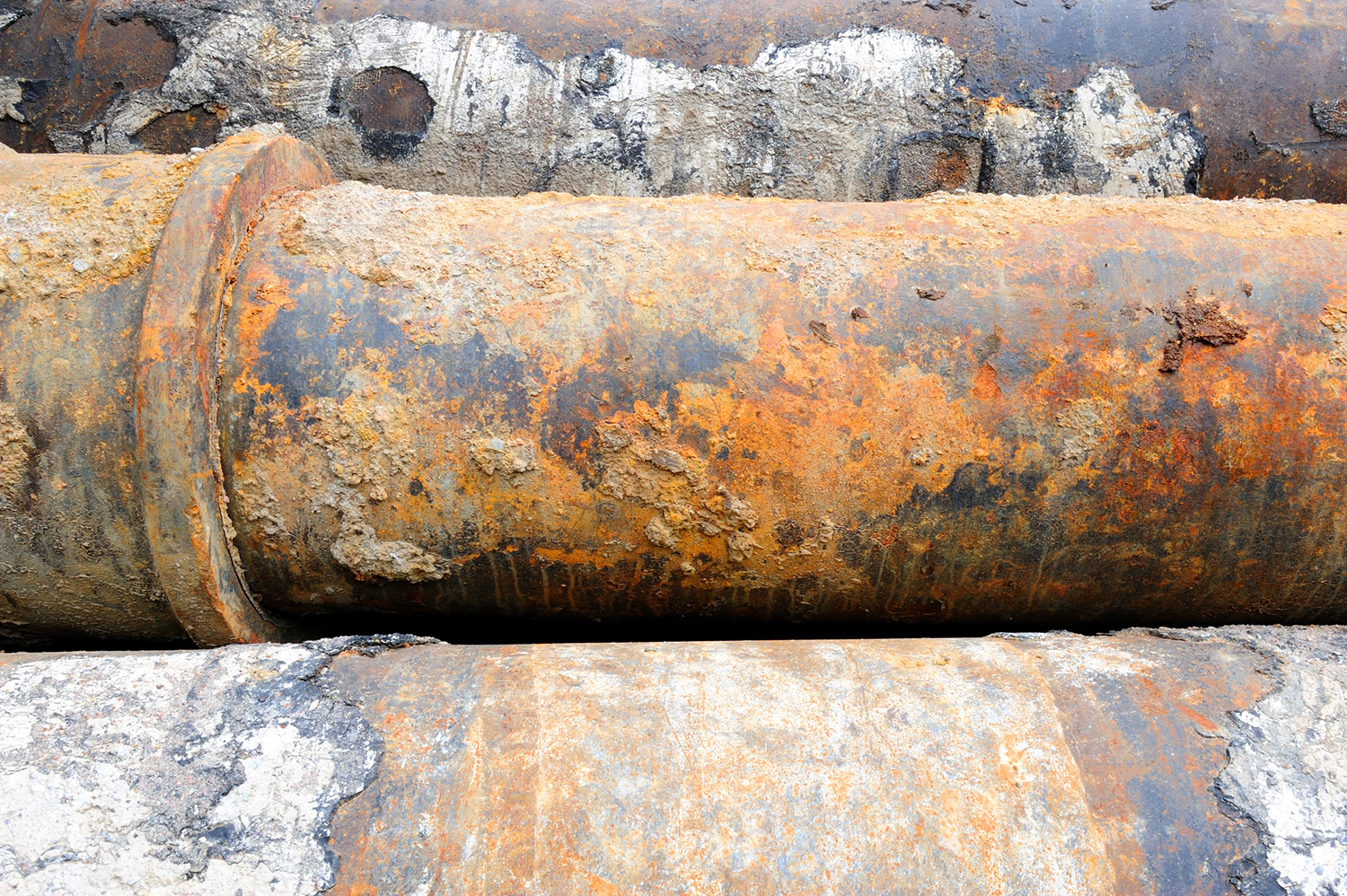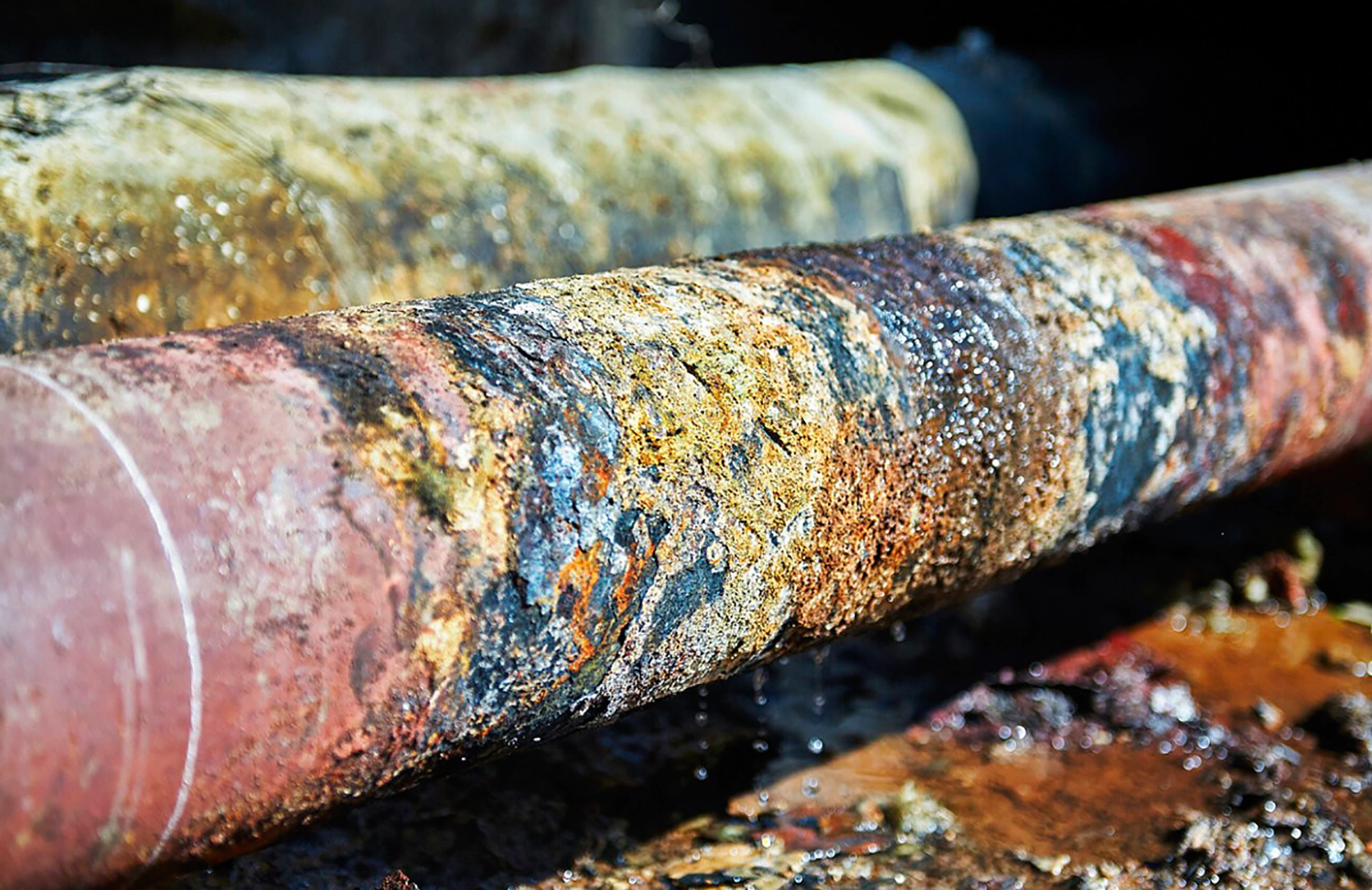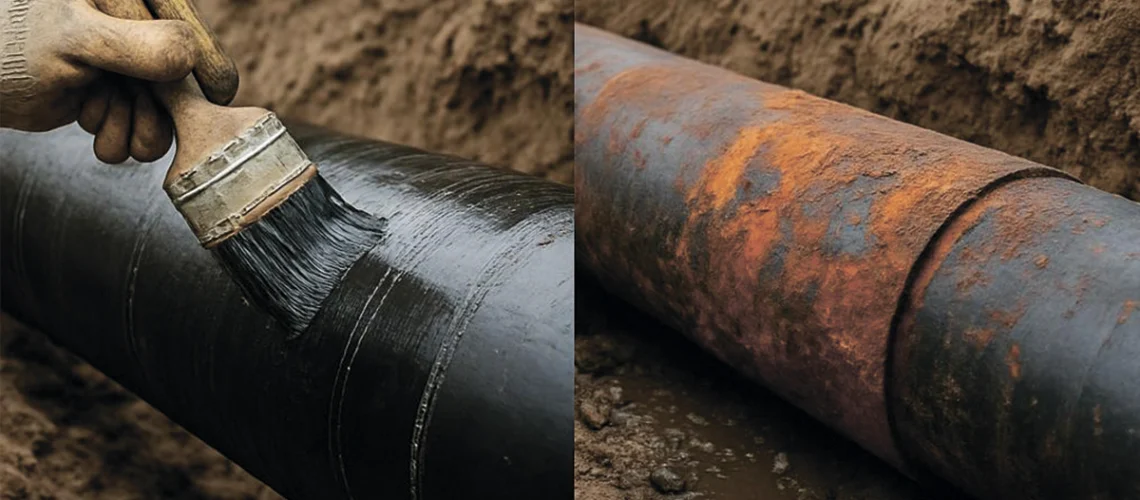Pipe corrosion is one of the most common—and costly—problems homeowners face in maintaining their plumbing systems. Whether it’s copper, galvanized steel, or even brass, every metal pipe is vulnerable to the slow and damaging effects of corrosion. But the good news is: with proper care and early intervention, corrosion can often be prevented or at least significantly delayed.
In this guide, we’ll cover the top expert tips on how to prevent corrosion in pipes, with a special focus on preventing copper pipe corrosion—since copper remains one of the most widely used materials in residential plumbing systems. We’ll also look at the signs of pipe corrosion, why it happens, and what you can do today to protect your home’s water supply system.
Contents
- 1 Why Pipe Corrosion Happens
- 2 How to Prevent Corrosion in Pipes: Proven Tips
- 3 Preventing Copper Pipe Corrosion in New Installations
- 4 What Prevents Corrosion in Pipes Long-Term?
- 5 How POM Plumbing Helps Prevent Pipe Corrosion in the GTA
- 6 Signs You May Already Have Corrosion in Your Pipes
- 7 Final Thoughts
Why Pipe Corrosion Happens
Before learning how to prevent pipe corrosion, it’s important to understand what causes it in the first place. Corrosion is a natural chemical process that occurs when water reacts with the metal surface of a pipe. Over time, this reaction can lead to rust, leaks, mineral buildup, and structural weakening.
Common causes include:
- Low or unbalanced pH in water (acidic or highly alkaline water)
- High oxygen or chlorine levels in municipal water supply
- Electrolysis or galvanic corrosion (from connecting dissimilar metals)
- Stagnant water in unused pipes
- High water velocity causing abrasion in the inner pipe surface
- Sediment or bacteria buildup inside plumbing lines
If left untreated, corrosion can cause discoloration in your water, low pressure, foul odor, pinhole leaks, or even full pipe failure.

How to Prevent Corrosion in Pipes: Proven Tips
1. Monitor and Adjust Water pH Levels
One of the biggest factors in preventing copper pipe corrosion is water chemistry. Ideally, your home’s water should have a neutral pH between 6.5 and 8.5.
- If the pH is too low (acidic), it can eat away at copper and steel pipes.
- If it’s too high (alkaline), it can cause mineral deposits that increase internal pressure.
Have your water tested annually and consider using a neutralizing filter or pH balancing system if needed.
2. Install Dielectric Unions
When dissimilar metals like copper and galvanized steel are connected, galvanic corrosion can occur. This reaction causes one metal (usually the less noble one) to corrode faster.
To prevent corrosion in copper pipes connected to other metals, install dielectric unions—fittings that separate the metals and prevent electrical current transfer.
3. Control Water Velocity
High water pressure or flow rates can lead to erosion corrosion, especially in copper systems. To avoid this:
- Keep residential water pressure between 40–60 psi.
- Use properly sized pipes to prevent excessive velocity.
- Avoid sharp bends and elbows that increase turbulence.
If your pipes “bang” or “whistle,” it may be a sign that flow rates are too high.
4. Flush Pipes Regularly in Low-Use Areas
Water stagnation contributes to corrosion by allowing oxygen and minerals to settle inside the pipe. To prevent corrosion in pipes in guest bathrooms, seasonal properties, or unused lines, flush them regularly to keep water moving.
You can do this by running taps weekly or installing an automated system to cycle water through the lines.
5. Avoid Over-Chlorination
While chlorine helps disinfect municipal water, high levels can be corrosive to copper and other metals. If you’re concerned about how to prevent copper pipe corrosion due to chlorine:
- Test your water for chlorine concentration.
- Install carbon filters or dechlorinating systems if necessary.
These systems can protect both your plumbing and your health.
Preventing Copper Pipe Corrosion in New Installations
If you’re installing a new plumbing system or replacing old pipes, taking preventive steps from day one will help extend the life of your pipes:
- Use only certified, high-quality copper piping (Type L or Type K for durability).
- Choose plastic or brass fittings when possible to minimize galvanic risk.
- Make sure all joints are clean and properly soldered—poor soldering leads to weak points.
- Consider coating exposed pipes with a protective insulation or sealant.
What Prevents Corrosion in Pipes Long-Term?
Preventing copper pipe corrosion is not about a one-time fix—it’s about ongoing maintenance and monitoring. Here’s what you can do to protect your pipes over the long term:
- Install a water softener if you live in a hard water area to reduce scale buildup.
- Use corrosion inhibitors in closed-loop systems like radiant heating or boilers.
- Inspect visible piping annually for green stains, pinhole leaks, or mineral buildup.
- Keep your water heater well-maintained—a failing anode rod can accelerate corrosion.
- Get professional plumbing inspections to detect early warning signs.
Homeowners often ask what prevents corrosion in pipes best—and the answer is a combination of water quality control, smart installation practices, and regular system checkups.

How POM Plumbing Helps Prevent Pipe Corrosion in the GTA
At POM Plumbing, we’ve helped hundreds of homeowners in Toronto and the surrounding area protect their plumbing from corrosion-related damage. We offer full system inspections, water testing, pipe replacement, and corrosion mitigation services.
Whether you’re seeing signs of pipe wear or planning a remodel, our licensed technicians will assess your water chemistry, plumbing materials, and installation to identify risks and offer long-lasting solutions.
Signs You May Already Have Corrosion in Your Pipes
Sometimes, corrosion happens silently until it’s too late. Watch for these warning signs:
- Rust-colored or metallic-tasting water
- Decreased water pressure
- Leaks or stains around pipe joints
- Green or bluish discoloration on copper pipes
- Unexplained spikes in water bills
If you notice any of these, it’s time to call a professional plumber before the damage worsens.
Final Thoughts
Understanding how to prevent corrosion in pipes is key to avoiding expensive plumbing repairs and protecting your home’s water system. Whether you’re preventing copper pipe corrosion during a new installation or trying to extend the life of an existing system, the right materials, practices, and maintenance can make a big difference.
From water pH control to dielectric fittings, simple steps today can prevent major problems tomorrow.




